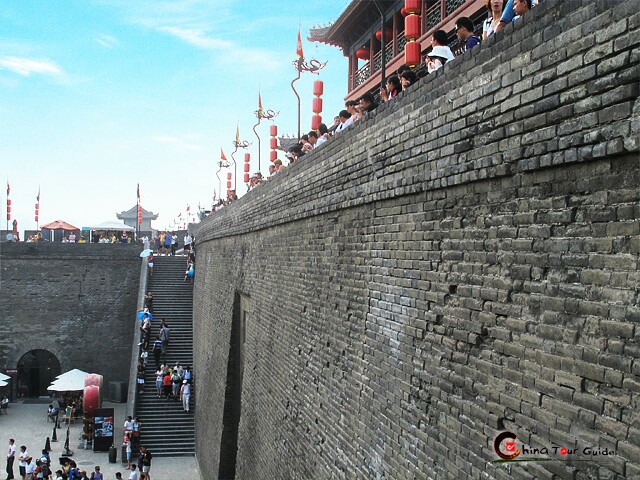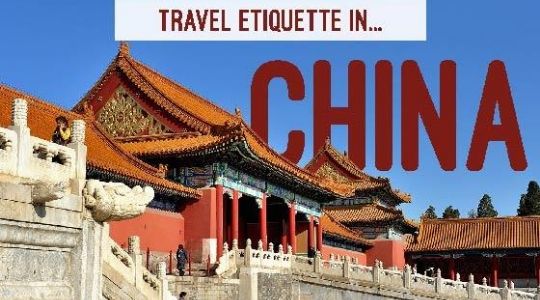20 Great Pieces Of Advice To Discover Hidden Food Gems in China
Wiki Article
Top 10 Tips To Shop Bargaining And Etiquette In China
1. Tip: Begin low Be respectful, however, you should offer between 50 and 70% of the price quoted and then negotiate it up. Be polite however firm to show you mean business.
Pro: It allows you to establish your position with the seller without offending them.
Con The idea of starting too low could frustrate the seller, especially when the item is priced with a lower margin.
2. Find out the market value
Do your research to find the price that is typical for the product you wish to purchase.
Pros: Prevents fraud and builds confidence in negotiations.
Con: It can take time to research, particularly for handmade or unique products.
3. Show Genuine Interest
Tip: If you believe that you're really interested in buying the item, sellers will be more willing to bargain.
Pro: Increases the chance of a successful deal by developing a relationship.
The negative: Your enthusiasm could be taken to mean a desire or desire to pay for more. This could weaken your position.
4. Step Away Strategically
Tip: If the price doesn't drop, slowly walk away. Sellers may call back to offer a lower price.
Pro: Often, this tactic works well to obtain the lowest cost.
Con: Can be detrimental, especially when a seller doesn't want to lower their price. This is particularly true for highly demanded items.
5. Learn Basic Mandarin Phrases
Tip: Phrases like "Tai gui le!" (Too expensive!) "Pianyi Yadian Ba" (Can it be cheaper?) Do your best.
Pros: The negotiation is more intimate. Sellers are typically more willing to negotiate.
Con: Using a limited vocabulary may not be helpful in more complex negotiations.
6. Be patient and calm.
Tips: Negotiations may require time. Be sure to avoid appearing stressed by keeping a cool demeanor.
Pro: Sellers often offer better prices to buyers who are patient and calm.
Cons: It takes time and effort, particularly when there are lots of competitors.
7. Bring Cash
Paying cash is often preferred by sellers over digital payment methods.
Advantage: Cash discounts are easily secured especially for small businesses.
Con: Carrying large sums of cash could put you in danger in markets with a lot of people because of pickpockets.
8. Discounts on Group Bookings
Get discounts in bulk when you purchase several products.
Pro: Improves negotiation skills and aids you get a more favorable deal.
Pro: Purchases can be more expensive than what you need and not always suit your requirements.
9. There's no need to be afraid to refuse.
Tip - Politely decline when the seller doesn't accept a reduction in price.
Pro: Reduces the chance of buyer regret and helps you adhere to your budget.
The downside is that you could be unable to get an item you really would have.
10. Be aware of when not to bargain
It is not appropriate to shop at high-end stores, department shops, or at supermarkets.
Pros: Prevents embarrassment while keeping respect for culture.
Con: Limits your chance to negotiate in certain situations.
Bargaining in China has its advantages
Savings: You could save a lot of money by bargaining the price.
Bargaining is a cultural experience that gives a unique opportunity to discover local traditions and customs.
Personal interaction - Forms an emotional connection with local vendors.
Cons of Bargaining in the Chinese Market
Time-consuming: Haggling can be lengthy, especially for inexperienced shoppers.
Language barriers can lead to problems with communication.
The process of bargaining is stressful for certain people.
If you master these techniques You'll be able to navigate Chinese markets with ease and will enjoy the art of haggling in your journey through Chinese culture! Have a look at the best see details about this location for site tips including zechawa valley tour route, blue dragon temple, xishuangbanna, taishan tour maps, xi an travel tips, eating in changchun, four gentlemen in chinese culture, chaotianmen dock%EF%BC%8C a major water transportation hub in chongqing, shopping in fuzhou, ancient football in china cuju in ancient china and more.

Top 10 Tips On Fees And Photography Guidelines While Visiting Temples In China
1. Find out the cost of entry in AdvanceTip: Many famous temples charge an entrance fee which ranges between Y=20 and 200 or more. Plan your trip in advance.
Pro Tip: Avoid surprises by preparing the correct amount of cash and digital payment.
Con: Unexpected extra costs, such as charges for exhibits, can arise.
2. Bring cash or a digital payment
A tip A few temples don't accept credit cards or other popular Chinese payment methods, such as WeChat Pay.
Pro: Quick entry and payment without the need for delays.
Cons: There aren't many options for foreign travelers unfamiliar with digital payment apps.
3. Photographic Signs are a great place to look.
You can always check if there are warnings on the walls that indicate the rules for when you are allowed to take photographs. Many temples limit photography in the sacred artifacts' sanctuaries or inside the temples.
Pro: Stops accidental infringement of rules or breaking the law.
Con: There could be different rules in temples in different areas, which requires special attention.
4. Avoid Flash Photography
Even if photography is permitted in a particular area, you should avoid flash. It can damage the artwork, or cause disturbance to worshipers.
Pro: Protects the environment of the temple and its art.
Low lighting can result in poor photographs.
5. Be respectful of the privacy of worshippers
Do not take photographs of religious ceremonies or individuals who are praying without their permission.
Pro: Shows an understanding of culture and respect for the privacy of one's own space.
Cons Limits your ability to record the temple's atmosphere.
6. Follow Drone Restrictions
Tip. Drones are generally not allowed in temples. It is recommended to check local rules before utilizing one to capture aerial shots.
Pro: You can stay clear of fines and confiscation of drones.
Cons: There are a limited number of angles to take photos.
7. Get Ready for Additional Fees
A tip: Some temples may charge a fee additional for the use of professional equipment like DSLRs or Tripods.
Pros: You are able to capture legal high-quality photographs.
Cons: Increases overall travel costs
8. Dress Modestly
Dress appropriately in temples. If you don't do this, you could be denied access or banned to certain areas.
Pros: You will blend in and show respect to the setting of worship.
Con: May require extra preparation, especially in hot weather.
9. Avoid crowded times for photos
TIP Beware of crowds by going early in the morning, or later in the afternoon. It will be easier to take unobstructed pictures.
Pro: Increases the quality of images and experience.
Cons: It may be difficult to adjust your schedule.
10. If you are in doubt, ask for permission
You can ask temple staff regarding any concerns you might have about the rules for photography.
Pro: Prevents accidental rules being broken.
Con: Language barriers might make communication difficult.
Benefits of Paying Fees and Rules for Photography
Respect for Cultural Values Affirmation of local customs and religious beliefs.
Preservation of artifacts and objects: Avoids the destruction of fragile structures and art.
Positive Experiences Avoiding conflicts with temple staff and worshippers.
Legal Compliance: Protects against fines or penalties if you break photography rules.
Pros and cons of following fees as well as photography regulations
Additional charges: Entry fees or photography permits may increase.
Restricted Creativity: Limitations can make it difficult to capture the perfect image.
Language Barriers.
The process of research is lengthy planning ahead requires longer and requires more effort.
You can have a relaxing, enjoyable, and respectful visit to China's temples if you adhere to the rules and regulations. It will also help protect their spiritual and cultural integrity. Have a look at the top plan your trip to this site for site advice including popular beijing night markets, the origin and history of the mysterious chinese dragon, xiamen, zechawa valley tour route, shopping in suzhou, ancient football in china cuju in ancient china, wuzhi mountain wuzhi shan five finger mountain, popular beijing night markets, binhai aircraft copyright theme park in tianjin, eating in urumqi and more.
